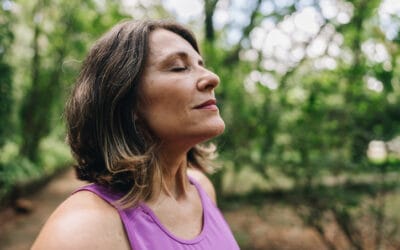What is your biological age?
The biological ageDifferent from chronological age. It is a measure of the body's ageing, based on the effectiveness of the mechanisms that keep cells young and on markers of the functionality of organs and apparatus.The biological age, that is the true age of our organism, does not always coincide with the chronological age. Today we have available new methods of measuring it. Not only that, it is also possible to slow it down, and to rewind the hands of our biological clock without the help of drugs.We all age, but the pace at which we do it varies from individual to individual. It is a common experience: if two people are the same age, they may not necessarily show the same signs of ageing. In short, chronological age is not biological age.Our cells have molecular mechanisms that preserve their youth.
 It is estimated on the basis of scientific evidence that our organism has the intrinsic capacity to live even beyond 115 yearsOur cells possess molecular mechanisms capable of keeping them young and it is estimated on the basis of scientific evidence that our organism has the intrinsic capacity to live over 115 years. To calculate the BAS we first consider the nine causes (hallmarks) of aging. In addition, we analyze the physiological changes that occur in the various organs and that lead to a reduction in their functionality. It is known, for example, that the cardiovascular system ages faster than the gastrointestinal system.This is why researchers have identified physiological markers of aging, system by system: cardiovascular, respiratory, renal, immune haematological, neurocognitive, digestive and hepatic, endocrine, musculoskeletal, sensory, tegumentary (which includes skin, hair, nails, hair, mammary glands, sweat glands and sebaceous glands) and bone marrow.
It is estimated on the basis of scientific evidence that our organism has the intrinsic capacity to live even beyond 115 yearsOur cells possess molecular mechanisms capable of keeping them young and it is estimated on the basis of scientific evidence that our organism has the intrinsic capacity to live over 115 years. To calculate the BAS we first consider the nine causes (hallmarks) of aging. In addition, we analyze the physiological changes that occur in the various organs and that lead to a reduction in their functionality. It is known, for example, that the cardiovascular system ages faster than the gastrointestinal system.This is why researchers have identified physiological markers of aging, system by system: cardiovascular, respiratory, renal, immune haematological, neurocognitive, digestive and hepatic, endocrine, musculoskeletal, sensory, tegumentary (which includes skin, hair, nails, hair, mammary glands, sweat glands and sebaceous glands) and bone marrow.The good news is that it is possible to intervene on the mechanisms of ageing even without drugs or complex genetic manipulation.
Slow down or even reverse biological aging
 Biological age is a different thing from chronological age. Today there are new generation tests that can measure it. The goal is to slow down the hands of the bioilogical watch with specific interventions and, in some cases, to reverse them.Fine, but once we measure biological age, what do we do with it? In addition to knowing if we are aging well or not – and if we are normal, accelerated or super ager – we can slow down the hands of the biological clock by undertaking specific actions and we may even recover biological age, by that mean also reducing the risk of onset of many chronic diseases typical of aging. The good new is that it is possible to modify the mechanisms of aging even without the help of drugs or complex genetic manipulations.
Biological age is a different thing from chronological age. Today there are new generation tests that can measure it. The goal is to slow down the hands of the bioilogical watch with specific interventions and, in some cases, to reverse them.Fine, but once we measure biological age, what do we do with it? In addition to knowing if we are aging well or not – and if we are normal, accelerated or super ager – we can slow down the hands of the biological clock by undertaking specific actions and we may even recover biological age, by that mean also reducing the risk of onset of many chronic diseases typical of aging. The good new is that it is possible to modify the mechanisms of aging even without the help of drugs or complex genetic manipulations.



